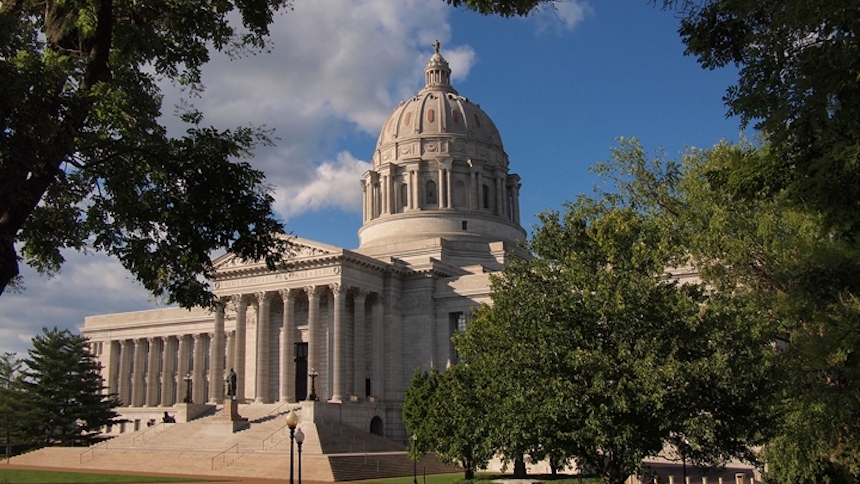Recapping a challenging but successful state legislative session

The 2022 legislative session of the Missouri General Assembly ended on May 13, and while the year brought a series of unique challenges, it ultimately proved to be quite successful for the business community and for southwest Missouri.
Numerous bills passed both chambers of the legislature and await Governor Mike Parson’s signature, in areas from workforce and economic development to small business tax relief to funding for education, infrastructure, community investment and more.
Click here for a downloadable PDF snapshot of successes from the 2022 state legislative session.
Workforce & economic development
The legislature passed several key bills designed to enhance the state's strategy around workforce development.
The Fast Track Workforce Incentive Grant program was reauthorized, and program improvements were implemented. This program, which provides funding for adults over the age of 25 to pursue additional skills and training in high-demand jobs, is highly utilized by both Ozarks Technical Community College and Missouri State University. Originally set to expire this year, this bill extends the sunset for the program through 2029 and removes the promissory note loan provision attached to the funding, which has been a barrier for potential applicants. This bill also added apprenticeship costs as an eligible funding expense.
A research and development tax credit for qualified research expenses was passed this year after several years of advocacy work from legislators and the Chamber. This incentive will promote entrepreneurial efforts and support new business growth within the state, as well as solidify Missouri's standing as a growing-tech hub.
The state also created Targeted Industrial Manufacturing Enhancement (TIME) zones, which will allow communities to work collaboratively to recapture a portion of the state's withholding taxes associated with new jobs and use that funding for infrastructure improvements. The legislature also passed improvements to the Missouri One Start program, the state's workforce development entity, including the addition of relocation costs to the current funding opportunities.
Efforts to pass small business tax relief through the SALT Parity Act also made it across the finish line. This act will result in approximately $84 million in small business tax cuts related to shareholder income tax payments.
K-12 & higher education
The legislature fully funded the education foundation formula as well as the K-12 transportation formula, which has not been fully funded for over 20 years.
The legislature approved updates to eligibility for the visiting scholars program, which encourages industry expert and business professional involvement in classrooms to increase student exposure to potential career paths. The improvements allow retired professionals to engage with students with approval from school administrators.
The opportunity to apply for innovation waivers in K-12 schools was also approved. These waivers allow schools to propose innovative efforts to better meet the needs of students and workforce demands.
Higher education institutions, including Missouri State University and Ozarks Technical Community College, saw significant investment this year. Community colleges and universities across the state received a 5.4 percent equity increase in core funding, which means $5.3M additional dollars for MSU and a $2.2M increase for OTC. Both institutions will also benefit from one-time funds dedicated to community colleges and universities statewide.
Budget wins
Lawmakers approved the addition of $10M in the state's budget to support childcare needs in businesses, which could include onsite childcare or additional employee support for their ongoing childcare needs.
Changes to the Neighborhood Youth Development Program regulatory language passed, directly impacting the current workforce barrier of childcare. This change will allow these types of programs, including the Springfield Boys and Girls Club, to serve five-year-old children in their after-school programs located in schools.
Finally, among the many budget wins, the legislature allocated the state's portion of the federal American Rescue Plan Act (ARPA) dollars to several crucial areas. Along with investment in specific organizations and programs in the southwest Missouri region, investments were made to promote workforce development outreach and training. Several other grant programs are aimed at supporting small business, economic development site development, non-profits, tourism marketing, community revitalization projects, and more.
Protecting pro-business policies
Based on member feedback and board approval, the Chamber joined several organizations and chambers across the state in advocating to uphold pro-business policies, ensuring Missouri remains a state of choice for jobs and investment.
This includes supporting the current right of private business to make decisions related to COVID-19 vaccine policies for their workforce. The Chamber also opposes proposed federal COVID-19 vaccine requirements for private business.
The Chamber also successfully advocated to maintain the funding stream created through the motor fuel user fee increase passed during the 2021 legislative session.
Unfinished priorities
Efforts to improve the state's initiative petition process were ultimately unsuccessful. These efforts included increasing the vote percentage for passage, amending the total signature requirement, and more. The Chamber supports an initiative petition process that allows citizens to engage while prioritizing increased transparency, predictability and increasing the threshold to amend the Missouri Constitution.
Efforts to improve the state's tort climate were also considered, including implementing a statute of limitations and statute of repose, but were not passed. The legislature has accomplished significant reforms over the past several years to ensure the legal climate is conducive to business growth, and the Chamber supports a continued focus on these reforms to further this goal.
We are grateful for the engagement of our members and volunteer leaders in our advocacy efforts. We also appreciate the service of our southwest Missouri delegation, including Springfield Senator Lincoln Hough and regional Senators Eric Burlison, Sandy Crawford, and Karla Eslinger, as well as Greene County Representatives John Black, Bishop Davidson, Craig Fishel, Betsy Fogle, Bill Owen, Crystal Quade, Alex Riley, Jered Taylor, and Curtis Trent.

